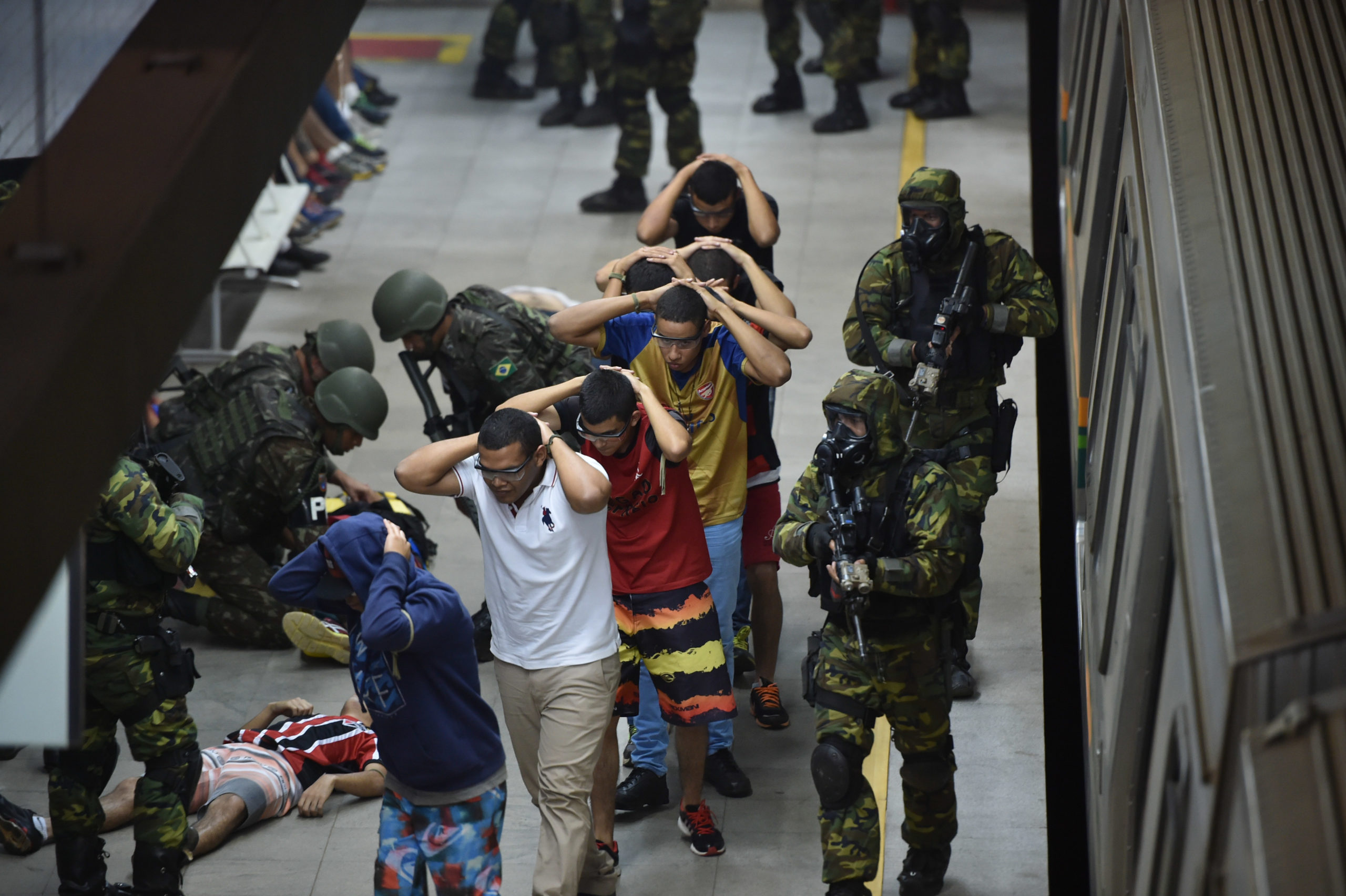At the UN, Brazilian organizations warn of the risks of broadening the definition of terrorism
Bills of law proposed by 'bolsonarismo' in recent years allow for the idea of terrorism to be employed to create mechanisms for persecution, surveillance and the criminalisation of civil society
 Foto: Andre Borges/Agência Brasília
Foto: Andre Borges/Agência Brasília
On Tuesday [14] six Brazilian NGOs called on the UN Human Rights Council to question Brazil about draft bills of law that broaden the definition of terrorism. According to the organizations, a broader definition of terrorism could be employed to criminalise legitimate acts of protest and peaceful demonstration.
The speech was presented at the 52nd session of the Council by Conectas, Article 19, the Institute for Defense of the Right to Defense, Global Justice, Terra de Direitos (Land of Rights) and the Criminal Justice Network.
The draft bills in question are 1595/2019, which was filed by the then federal congressman Major Vitor Hugo (PSL-GO), and bills 732/2022 and 733/2022, which were filed by the government during the mandate of President Jair Bolsonaro (PL). They are all currently pending in the Chamber of Deputies.
Read more
The organizations express concern over the legislative debate surrounding the broadening of the definition of terrorism in Brazil. Draft bills such as 1595/2019, 732 and 733/2022, propose the inclusion of “political and ideological motivation” as an element that characterises an act of terrorism. This could be used to restrict fundamental freedom, such as freedom of expression, association and assembly which are essential in a democratic system.
The organizations are requesting that the Brazilian state be questioned on these draft bills and on the use of the claim of fighting terrorism to create mechanisms of persecution, surveillance and the criminalisation of civil society. Furthermore, they are asking for the State to respect international obligations and commitments it has made regarding this matter and to not allow proposals that restrict citizens´ fundamental freedom to go ahead.
This matter re-emerged following the acts of insurgency that took place in January, in Brasília, motivation for which was a refusal to accept the result of the last elections. The organizations highlight the importance of investigating the accountability of those who took part in these actions and those who ordered them and the financed them, as well as measures for reparation and non-repetition. In addition, they reaffirmed their commitment to democracy and to improving mechanisms to defend rule of law.






